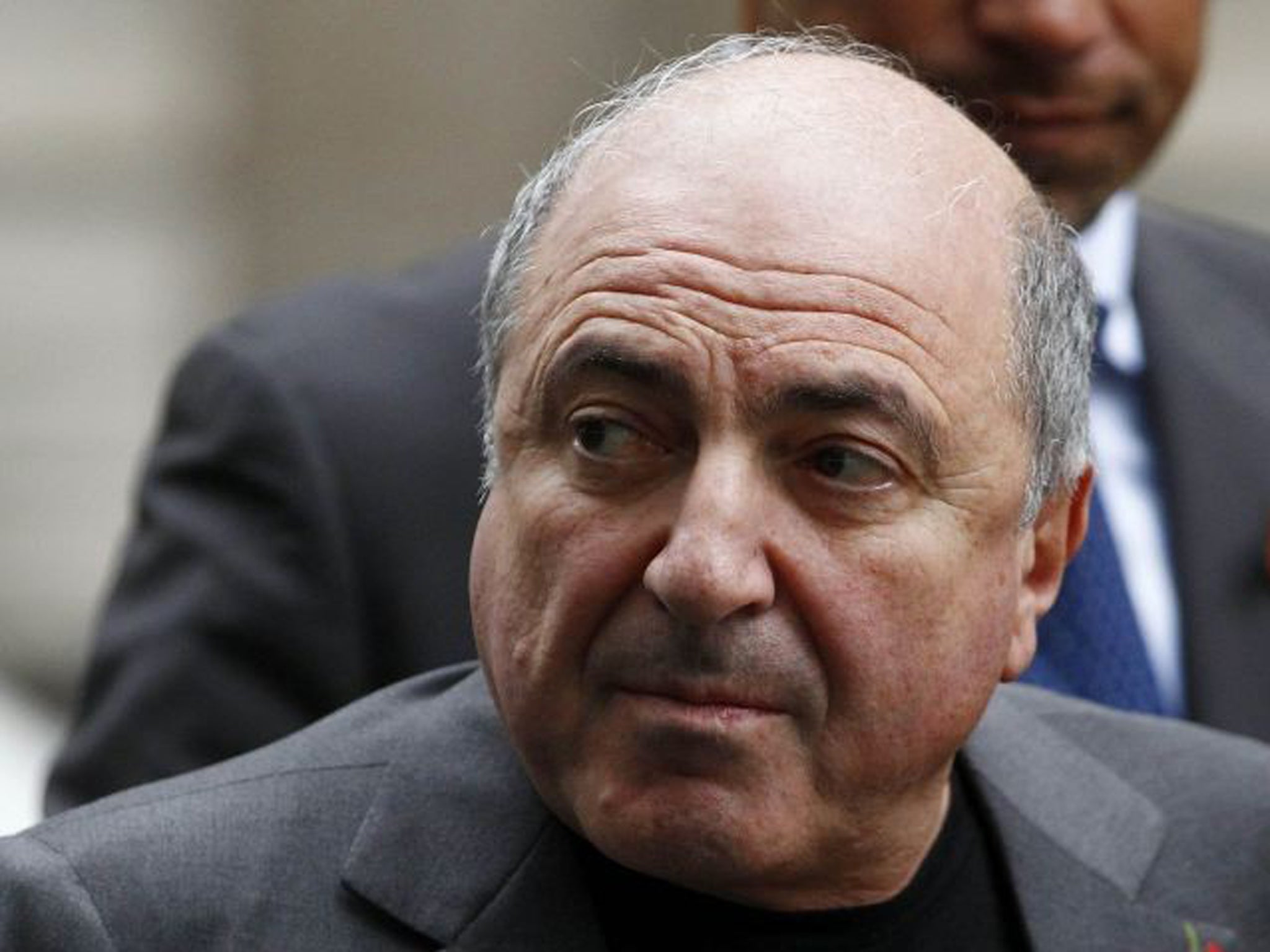Exiled Russian tycoon Boris Berezovsky found dead in his Berkshire home at 67
Police investigate death in Britain of exiled Russian tycoon who had made a powerful enemy in Vladimir Putin

Boris Berezovsky, the Russian tycoon and former Kremlin insider who became one of President Vladimir Putin's fiercest critics, died at his Berkshire home yesterday. Initial reports said he died in his bath, and several sources claimed he had been depressed. Other accounts said he had recently suffered heart attacks. Thames Valley Police are now investigating.
There was immediate speculation in Moscow and elsewhere that he had committed suicide, but, until a thorough investigation is completed, and possibly thereafter, doubts will surround both the cause of death and his complex legacy. Berezovsky, 67, who had been granted asylum in Britain, was a man not without enemies, up to and including powerful elements in his home country. Nor, according to some quarters, was he short of financial concerns.
Last year, he lost his £3bn claim against fellow oligarch Roman Abramovich, in which he accused the Chelsea Football Club owner of blackmail, breach of trust and breach of contract. He said the billionaire Russian businessman had "intimidated" him into selling shares in a Russian oil company at a fraction of their value and broken a promise made during a deal relating to a Russian aluminium company. Mr Abramovich said the claims had "no merit".
Mrs Justice Gloster ruled in Mr Abramovich's favour in August following a trial in London at which both men gave evidence. The judge described Berezovsky as an "unimpressive, and inherently unreliable, witness", but said she found Mr Abramovich to be a "truthful, and on the whole reliable, witness".
In October, the judge was told by lawyers that Berezovsky had agreed to pay £35m towards Mr Abramovich's legal costs in the wake of her ruling. She was given no detail of the amount of costs run up by Berezovsky, but The Lawyer legal magazine said the case was thought to have generated "total fees" of more than £100m.
Two months ago, Elena Gorbunova, his former girlfriend and the mother of his two children, who claims he owed her millions of pounds, tried to have £200m of Berezovsky's assets frozen. In making that case public, something Berezovsky fought against, the judge said: "On the evidence, Mr Berezovsky is a man under financial pressure. It is likely he will feel a more pressing need to satisfy creditors than satisfy Ms Gorbunova. There is a risk (which, if the evidence is correct, is a serious risk) that he would apply property promised to Ms Gorbunova for other purposes." Berezovsky's costs relating to this case are said to have so far reached £250,000. Last Wednesday, he sold Red Lenin, an Andy Warhol screen print, for £133,875, including the buyer's premium, at Christie's.
Berezovsky was a former mathematician who prospered mightily in the 1990s, initially by importing Mercedes cars into Russia. His fortunes rose to the point where he had control of the Sibneft oil company and Channel One, a leading Russian television station. He was then a member of Boris Yeltsin's inner circle, and widely thought to be Mr Putin's kingmaker, persuading the declining Yeltsin to make the young ex-KGB officer prime minister, and so, in due course, acting president.
But his fall from grace in Moscow was swift, leading to his conviction in absentia of "economic crimes". He was still, at the time of his death, a wanted man in his home country. He had survived several assassination attempts, including one in which a bomb decapitated his chauffeur.
President Putin's spokesman claimed last night that Berezovsky had recently written to him asking for forgiveness and for permission to return to Russia. If true, it would certainly back those, including his son-in-law, who said that he had recently been depressed and had failed to keep in touch with friends.
Aleksandr Dobrovinksy, the head of the Moscow-based law firm Alexander Dobrovinsky & Partners, was earlier reported to have written in Russian on a social media page: "Just got a call from London. Boris Berezovsky has committed suicide." He later told Russian television that his client lately had been in "a horrible, terrible" emotional state. "All he had was debts," Dobrovinsky said. "He was practically destroyed. He was selling his paintings and other things."
Damian Kudriavtsev, the former CEO of Kommersant Publishing House, also commented on the businessman's death, saying he passed away at 11:00 GMT in London. On his Twitter account, according to Russian media, Mr Kudriavtsev said there were no signs of a violent death. Among those suggesting otherwise was an anonymous editor on Wikipedia. Less than half an hour after Berezovsky's death was reported, his entry had been amended to include a claim that he had been assassinated.
Such was Berezovsky's position, and so sticky the ends of a few who have seriously crossed the Kremlin, that speculation is bound to pursue his memory, regardless of how he actually died.
Join our commenting forum
Join thought-provoking conversations, follow other Independent readers and see their replies
Comments
Bookmark popover
Removed from bookmarks